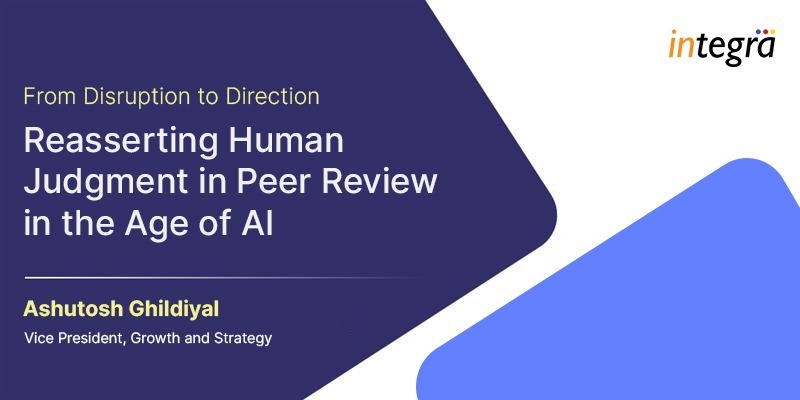Unlocking the Business Impact of AI Consultancy: A Comprehensive Guide

The business landscape is in a state of constant flux, demanding innovation and agility. Artificial intelligence (AI) has emerged as a powerful tool for organizations seeking to transform their operations, optimize processes, and gain a competitive edge. A recent McKinsey report cites that up to 20% of a company’s EBIT (earnings before interest and taxes) can be attributed to AI in some leading organizations and a PWC study showed that AI could contribute up to $15.7 trillion to the global economy in 2030. However, navigating the complexities of AI implementation can be a daunting task. This is where AI consultancy steps in, providing businesses with the expertise and guidance needed to unlock the true potential of AI.
Understanding the Role of AI Consultancy in Business Transformation
AI consultancy firms offer a range of services, including:
- AI Consulting Services: A broad term encompassing all aspects of AI implementation, from strategy development to solution deployment.
- AI Business Consulting: Focuses on aligning AI initiatives with overall business goals and objectives.
- AI Strategy Consulting: Assists companies in developing a comprehensive roadmap for AI adoption.
- AI Implementation Consulting: Provides expertise in putting AI solutions into action.
- AI Advisory Services: Offers guidance on specific AI technologies and their potential applications.
By partnering with an AI consultancy, businesses gain access to a wealth of knowledge and expertise. Consultants can help organizations:
- Identify high-impact opportunities where AI can deliver significant value, such as automating repetitive tasks, improving forecasting accuracy, or personalizing customer experiences.
- Develop a tailored AI strategy that aligns with your specific business goals, ensuring AI initiatives contribute directly to the bottom line.
- Navigate the complexities of AI implementation, from data management and model selection to change management and talent acquisition.
- Ensure responsible and ethical use of AI technologies, mitigating potential biases and adhering to data privacy regulations.
- Measure and optimize the business impact of AI initiatives, ensuring a continuous feedback loop for improvement.
Key Areas Where AI Consultancy Can Drive Business Value
AI has the potential to revolutionize a wide range of industries and business functions. Here are some key areas where AI consultancy can deliver significant value:
- AI Consulting Use Cases: Consultants can help identify specific use cases for AI within your organization, such as automating customer service tasks with chatbots (increasing customer satisfaction by 31% according to a PwC report on AI in customer service) or optimizing supply chain management through predictive analytics (reducing logistics costs by up to 10% as reported by McKinsey report on AI in supply chain).
- AI Consulting for Businesses of All Sizes: AI consultancy services are beneficial for businesses of all sizes. Startups can leverage consultants to explore AI for the first time, while established enterprises can refine existing AI strategies to maximize their return on investment.
- AI Consulting for Enterprises: Large enterprises with complex operations can benefit immensely from AI consultancy. Consultants can identify areas for significant efficiency gains and cost savings, such as automating back-office processes or optimizing resource allocation.
- AI Consulting for Specific Industries: Many AI consultancy firms specialize in specific industries, such as healthcare, finance, or manufacturing. This industry-specific expertise allows them to offer tailored solutions and insights that are most relevant to your business.
- AI Consulting for Specific Business Functions: Consultants can assist with AI implementation in various functions like marketing (personalizing campaigns for higher conversion rates), sales (predictive lead scoring for improved targeting), human resources (streamlining recruitment processes), and risk management (fraud detection and prevention).
Assessing the Current State of AI Maturity in Your Organization
Before embarking on an AI journey, it’s crucial to understand your organization’s current AI maturity level. AI maturity assessments evaluate factors such as:
- AI Capability Assessment: Gauges the organization’s existing skills and expertise in AI technologies.
- AI Readiness Assessment: Determines the organization’s infrastructure, data readiness, and overall preparedness for AI adoption.
- AI Adoption Assessment: Evaluates the organization’s current use of AI technologies and identifies areas for improvement.
- AI Implementation Readiness Assessment: Assesses the organization’s readiness to implement specific AI solutions.
By conducting an AI maturity assessment, businesses can identify gaps and develop a roadmap for building a strong foundation for AI implementation.
Developing a Comprehensive AI Strategy with the Help of Consultants
Following a thorough AI maturity assessment, collaboration with an AI consultancy firm becomes even more valuable. Consultants can play a crucial role in developing a successful AI strategy that aligns with your organization’s goals. This strategy typically involves:
- AI Strategy Development: This stage involves defining the overall vision and objectives for AI adoption within the organization. Consultants will work with you to establish clear goals and desired outcomes for your AI initiatives.
- AI Roadmap Planning: Creating a detailed plan outlining the steps involved in implementing AI solutions is essential. The roadmap should consider factors like budget allocation, resource requirements, and timelines for each stage of implementation.
- AI Transformation Strategy: Developing a comprehensive strategy for integrating AI into the organization’s business processes goes beyond just technology. This strategy should address potential cultural shifts, change management processes, and employee training needs.
- AI Implementation Strategy: Identifying specific AI solutions to be implemented and outlining a clear plan for deployment is crucial. Consultants can help you prioritize high-impact use cases and develop a phased approach for implementation.
- AI Governance Framework: Establishing ethical guidelines and best practices for managing and deploying AI technologies is paramount. This framework should address issues like data privacy, bias mitigation, and algorithmic transparency.
A well-developed AI strategy, crafted with the guidance of an AI consultancy firm, ensures that your AI initiatives are:
- Aligned with business objectives: AI should directly contribute to achieving your organization’s strategic goals.
- Grounded in responsible practices: Ethical considerations and data privacy regulations should be central to your AI strategy.
- Supported by a clear implementation plan: A well-defined roadmap with milestones ensures smooth execution and minimizes disruption.
- Delivering measurable results: Having clear metrics in place allows you to track the success of your AI initiatives and optimize them for continuous improvement.
Implementing AI Solutions with the Guidance of Experienced Consultants
The implementation phase is where the rubber meets the road and you begin to realize the benefits of AI. AI consultants can provide invaluable support throughout this process, ensuring a smooth and successful deployment:
- AI Implementation Services: Consultants can assist with the technical aspects of deploying AI solutions, such as data integration, model training, and infrastructure configuration. They can help you navigate the complexities of AI technology and ensure your chosen solutions are implemented correctly.
- AI Deployment Support: Going beyond the initial setup, ongoing support during deployment is crucial. Consultants can help address unforeseen challenges, troubleshoot technical issues, and fine-tune models for optimal performance.
- AI Integration Services: Seamlessly integrating AI solutions into your existing IT infrastructure is essential. Consultants can help bridge the gap between your new AI systems and existing technologies, ensuring data flows smoothly and processes are streamlined.
- AI Change Management: Implementing AI can lead to significant changes in workflows and employee roles. Consultants can develop strategies to manage change within the organization, address employee concerns, and foster a culture of adoption for AI technologies.
- AI Training and Upskilling: Equipping your workforce with the necessary skills to understand and utilize AI effectively is critical. Consultants can provide training programs tailored to different roles within your organization, ensuring employees are comfortable working alongside AI and maximizing its potential.
By partnering with an AI consultancy firm during implementation, you gain access to a team of experts who can:
- Bridge the skills gap: Consultants can provide the technical expertise you may lack in-house, ensuring a smooth and efficient implementation process.
- Minimize disruption: Their experience can help mitigate potential risks and challenges associated with AI deployment, minimizing disruption to your core business operations.
- Accelerate time to value: Consultants can help you get your AI solutions up and running faster, allowing you to realize the benefits of AI sooner.
In today’s dynamic business landscape, AI presents a transformative opportunity. However, navigating the complexities of AI implementation can be a challenge. AI consultancy firms offer a wealth of expertise and support, guiding businesses throughout the entire AI journey – from strategy development to implementation and ongoing optimization. If you would like to know more, you can connect with our AI experts at Integra to unlock the true potential of AI and achieve sustainable business growth.
Recent Blogs

Print, Pedagogy, and AI: The New Architecture of Educational Publishing

From Disruption to Direction: Reasserting Human Judgment in Peer Review in the Age of AI


